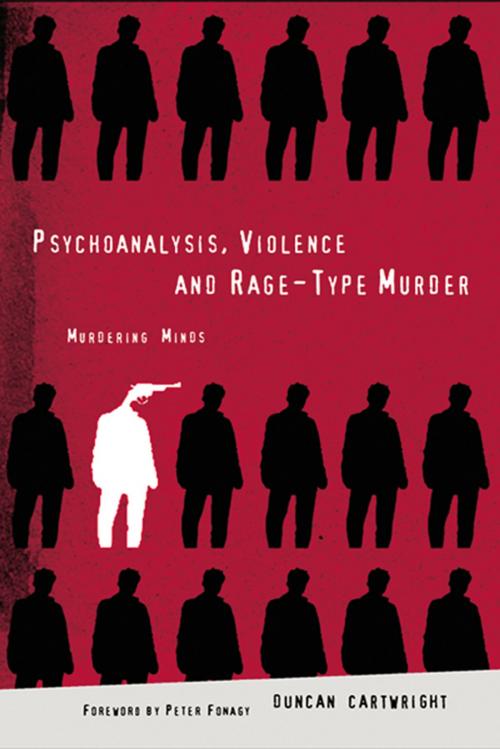Psychoanalysis, Violence and Rage-Type Murder
Murdering Minds
Nonfiction, Health & Well Being, Psychology, Emotions, Mental Health| Author: | Duncan Cartwright | ISBN: | 9781317710868 |
| Publisher: | Taylor and Francis | Publication: | May 22, 2014 |
| Imprint: | Routledge | Language: | English |
| Author: | Duncan Cartwright |
| ISBN: | 9781317710868 |
| Publisher: | Taylor and Francis |
| Publication: | May 22, 2014 |
| Imprint: | Routledge |
| Language: | English |
What turns an apparently 'normal' individual into a killer?
Many people who commit "rage type" murders have no history of violence. Using psychoanalytic theory and a number of case studies, this book isolates key psychological factors that appear to help explain why such acts of extreme violence occur.
Starting from a psychoanalytic standpoint, Psychoanalysis, Violence and Rage-Type Murder argues for a pluralistic approach to understanding aggression, and claims that the origins of aggression have no single source or cause. Drawing broadly on psychological, criminological and psychoanalytic research the author outlines the clinical features of the act and explores the possible role that psychopathology and personality might play in the build up to murder. These observations raise a number of questions about the so-called 'normality' of the individual alongside the capacity to commit murder, and how we might understand the stability of such offenders. Psychoanalysis, Violence and Rage-Type Murder will be of great interest to psychotherapists, forensic psychotherapists, psychoanalysts, psychologists, criminologists and health care workers.
What turns an apparently 'normal' individual into a killer?
Many people who commit "rage type" murders have no history of violence. Using psychoanalytic theory and a number of case studies, this book isolates key psychological factors that appear to help explain why such acts of extreme violence occur.
Starting from a psychoanalytic standpoint, Psychoanalysis, Violence and Rage-Type Murder argues for a pluralistic approach to understanding aggression, and claims that the origins of aggression have no single source or cause. Drawing broadly on psychological, criminological and psychoanalytic research the author outlines the clinical features of the act and explores the possible role that psychopathology and personality might play in the build up to murder. These observations raise a number of questions about the so-called 'normality' of the individual alongside the capacity to commit murder, and how we might understand the stability of such offenders. Psychoanalysis, Violence and Rage-Type Murder will be of great interest to psychotherapists, forensic psychotherapists, psychoanalysts, psychologists, criminologists and health care workers.















